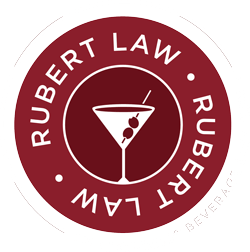On May 5th, 2015, Florida’s Department of Business and Professional Regulation, Division of Alcoholic Beverages and Tobacco, issued a Notice denying Brew2U’s Petition for a Declaratory Statement.
DABT’s Decision:
Brew2U proposed a business that would deliver alcoholic beverages from vendors (“mom and pop” liquor stores) directly to consumers. In order to operate within the proper authority, Brew2U petitioned Florida’s DABT to issue a Declaratory Statement on the legality of the proposal. However, DABT declined to rule on the Petition, stating, “The scenario described in the Petition is neither specific nor limited to the Petitioner.” Therefore, the “Division is unable to exceed the authority granted by the legislature and issue a response that amounts to a rule.” Declaratory statements are not used to interpret statutes that could potentially apply to an entire class of persons, so DABT denied the Petition.
Declaratory Statements
In sum, there are two requirements for DABT to issue a Declaratory Statement. First, the Petitioner must have standing, meaning that the person must be “substantially affected” by the rules or statutes in the Petitioner’s particular set of circumstances. Second, the Petition must state “with particularity” the circumstances and specify the statutory provision, rule, or order that the Petitioner believes may apply.
Here, the first prong has been met. Brew2U is the holder of an alcoholic beverage license, so it is “substantially affected” by the statutory provisions in Florida’s alcoholic beverage laws. However, the Petitioner has failed to meet the second prong. While DABT’s Denial does not specifically state what the Petitioner is missing, it has decided that the Petitioner failed to allege his particular circumstances.
What is Brew2U?
Brew2U is an alcoholic beverage delivery service, allowing customers to place orders via a website, phone call, or mobile app. The customer would pay a delivery fee, resulting in revenue for the liquor store. Once the liquor store accepts the order, it would send one of its employees to deliver the beverages. At the delivery, the employee would verify the age of the customer. Brew2U would then receive an agreed-upon commission for each sale.
The Law
Florida Statute § 562.07 states that it is unlawful for alcoholic beverages to be transported in quantities of twelve or more bottles with five exceptions:
- By common carriers;
- In vehicles owned or leased by the vendors, transporting alcoholic beverages from a distributor to the vendor’s place of business;
- Individuals who possess alcoholic beverages, not for resale within the State;
- Licensed businesses within one of the three tiers (manufacturer, distributor, vendor) that are transporting alcoholic beverages in vehicles that are owned or leased by the licensee; and
- A vendor, distributor, or pool buying agent, or salesperson of wine.
While DABT will not make a decision that amounts to a “rule,” the underlying issue here is Florida’s three-tiered system. Under the three tiers, licensed vendors are the only authorized business that could sell or deliver alcoholic beverages to the consumer. If a licensed alcoholic beverage vendor wants to deliver beverages to customers under current Florida law, it must own or lease the delivery vehicles.
Brew2U Arguments
Brew2U has two main arguments. First, that by providing alcoholic beverage delivery, it creates a safer environment by allowing a customer to order alcohol from his home versus driving to a local vendor. Second, Brew2U points to competing companies that are already providing alcoholic beverage delivery services. For example, Digital Liquor Delivery (Thirstie.com) currently delivers wine and spirits directly to consumers in Miami. Another company, Mini Bar Delivery (minibardelivery.com) also provides delivery services in Miami.
How are other companies getting away with delivering alcohol without a vendor’s license? After searching the provider’s websites, you will not find any orders for more than twelve bottles, whether that is beer or liquor. The maximum beer quantity a customer can order is twelve, so it seems that these companies are operating within the law.
The bigger question is, and will be, how Florida’s DABT will handle the growing number of alcoholic beverage delivery services. Will it require licensing and adhere to the stringent three-tiered system? Will DABT look to the legislature to create statutory guidelines? The Florida legislature does not meet again until March 2016 for its regular session. Until then, expect an increase in alcoholic beverage delivery companies, and heavy opposition from trade organizations and lobbyists that represent the individual tiers in Florida’s alcoholic beverage system.
A copy of the declination can be obtained by contacting: [email protected]. If you have any questions regarding this declination or any other matters concerning alcoholic beverage law, please do not hesitate to contact us at [email protected].
